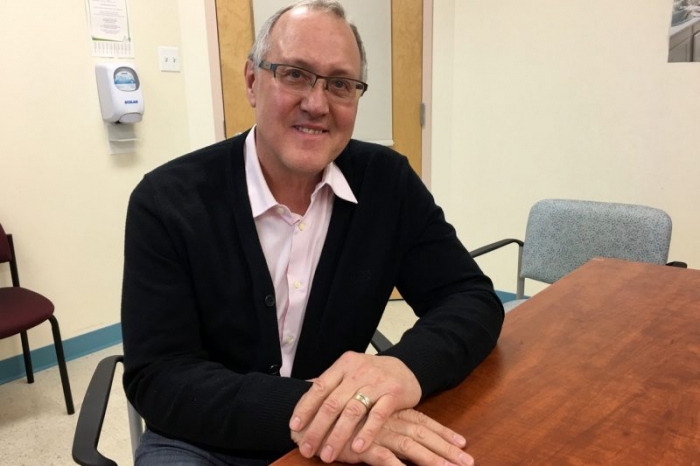You are here
Home 🌿 Medical Cannabis News 🌿 Nova Scotia: Progressive Yarmouth Physician Talks About Cannabis 🌿Nova Scotia: Progressive Yarmouth Physician Talks About Cannabis

Stigma of medical marijuana gradually being overcome.
Although doctors were federally authorized by Health Canada in the spring of 2014 to write prescriptions for cannabis if they so choose - following guidelines and a protocol established by the Canadian Medical Association - not all choose to do so.
They can’t just walk into the office and ask for cannabis.
Dr. Roland Muise on prescribing medical marijuana
A strong negative stigma remains, even among some physicians.
Dr. Roland Muise is one of several exceptions in the region. He graduated medical school in 1976 and has about 4,000 patients.
He shares one of his favourite stories to colleagues who still associate the use of cannabis with weed-smoking hippies.
“I have a patient in her 70s, who had severe disk disease with sciatic pain. Nothing would control her pain,” he said.
Although narcotics provided reasonable control, they left her feeling dizzy, nauseated and constipated.
“One day I said to her, ‘there’s something else we could try.’ She said, ‘What is it?’ I said, ‘medical marijuana.’
"‘No way! I’m not a pothead,’” she said.
“I told her it wouldn’t have to be smoked, that it could be put in chocolate cookies. ‘She said, well… maybe.’ We got the chocolate cookies and she takes a little piece every day and off she goes.”
Muise embarked on an educational program and attended conferences on the use of cannabis. He continues to monitor results of scientific blind studies being conducted in other parts of Canada.
He says the place of cannabis is not as a primary treatment but as an alternative to conventional medications and treatments after they have been tried and the patient is either not tolerating the medication or they are not adequately controlling the issue to a desirable level.
He advises administering the treatment in oral form: either in an oil, a butter, or a food source (brownies, gummy bears).
Muise, who runs the chronic pain clinic at Yarmouth hospital with Dr. Alban Comeau, presents talks on pain management to the residents and the doctors. Part of that is teaching them about the role of cannabis, as well as opiates.
In June he will give a talk on safe opiate prescribing techniques.
“This is a huge thing right now. I’ve taken a lot of people off narcotics and put them on cannabis and they’re very fine thank you very much,” he said.
He stresses the importance of prescribing the correct cannabis component concentrations and dosage for individuals. Smoking marijuana is not recommended, as each joint is equal to five regular cigarettes, multiplying the potential for lung cancer, bronchitis and other forms of damage.
“Inhaled by vaporizer the effects last an hour to an hour-and-a-half, but taken in a food source the effects usually lasts six to eight hours and there is less chance of getting the euphoria. We don’t want to reach the euphoria, we want to keep to the pain control,” he said.
“If we keep it between 50 and 100 micrograms then we are in the pain control level. If we go over 100, then they start getting the side effects of euphoria, paranoia, lethargy, nodding off, etc.”
Muise says he does have concerns about the legalization of marijuana for recreational use in 2018.
“The guidelines are not to prescribe it (cannabis) to anyone under 19 but it should be 25 because of the brain development. The immature brain can be injured or damaged by cannabis. There are side effects,” he said.
Those who plan on visiting their doctor for a prescription for medical marijuana are subject to the Canadian Medical Association protocol and guidelines.
“They can’t just walk into the office and ask for cannabis,” he said.
A gram of medical cannabis costs about $10 and there are Health Canada designated providers all across the country. Medical marijuana designated providers are listed on the Health Canada website.
Use of medical marijuana
Following are some of the disorders that some health practitioners are prescribing medical marijuana for:
- severe refractory nausea and vomiting associated with cancer chemotherapy;
- loss of appetite and body weight in cancer patients and patients with HIV/AIDS;
- pain and muscle spasms associated with multiple sclerosis;
- chronic non-cancer pain (mainly neuropathic);
- severe refractory cancer-associated pain;
- insomnia and depressed mood associated with chronic diseases (HIV/AIDS, chronic non-cancer pain);
- and symptoms encountered in the palliative/end-of-life care setting.
420 Intel is Your Source for Marijuana News
420 Intel Canada is your leading news source for the Canadian cannabis industry. Get the latest updates on Canadian cannabis stocks and developments on how Canada continues to be a major player in the worldwide recreational and medical cannabis industry.
420 Intel Canada is the Canadian Industry news outlet that will keep you updated on how these Canadian developments in recreational and medical marijuana will impact the country and the world. Our commitment is to bring you the most important cannabis news stories from across Canada every day of the week.
Marijuana industry news is a constant endeavor with new developments each day. For marijuana news across the True North, 420 Intel Canada promises to bring you quality, Canadian, cannabis industry news.
You can get 420 Intel news delivered directly to your inbox by signing up for our daily marijuana news, ensuring you’re always kept up to date on the ever-changing cannabis industry. To stay even better informed about marijuana legalization news follow us on Twitter, Facebook and LinkedIn.





